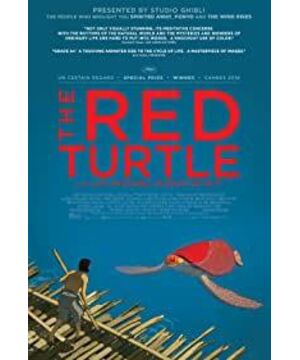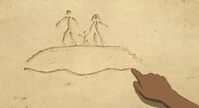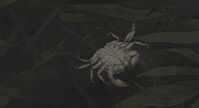I think it's a pity that one of the plots didn't follow through. A disaster hits and destroys everything, but the family of three is safe and sound. Just let the parents die, and the adult son continues to guard an isolated island, letting him decide whether to stay here or go out. Otherwise, this disaster is meaningless, and nothing has really changed. Gao Dianxun did not carry out the sadness of the impermanence of the world to the end in "The Story of Bamboo Tori", and Bamboo Tori Ji still did not see through everything in the world, and was still nostalgic for the warmth of the family, and was forgotten by the goddess forcibly put on clothes. When I get older, I don't go to extremes in love and warmth, and all I take are family albums.
This kind of animation does not have much Ghibli depth, a little consonance and imagination, only the courage, love and family common to the western world, people and nature, survival and reproduction, and young people to go out. Men are courage, women are nature. There is only one bamboo forest on the island that is quite "oriental". Sure enough, Gao Dianxun used the experience that he had used in the story of bamboo. The impermanence of the world also has a bit of an oriental meaning. If you want to raise it a little higher, you can talk about Eastern culture and Western ecologicalism. Various animals appear in Zhuangzi's "Xiaoyaoyou", reflecting the ancient ancestors' idea that things are not separated from one another, things change to each other, and people and nature are one.
View more about The Red Turtle reviews








